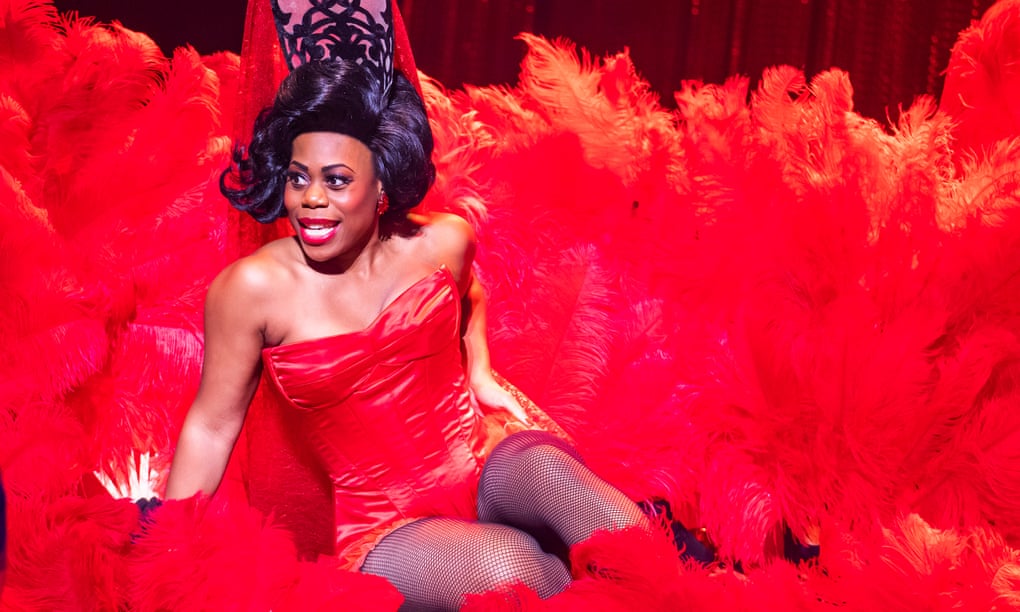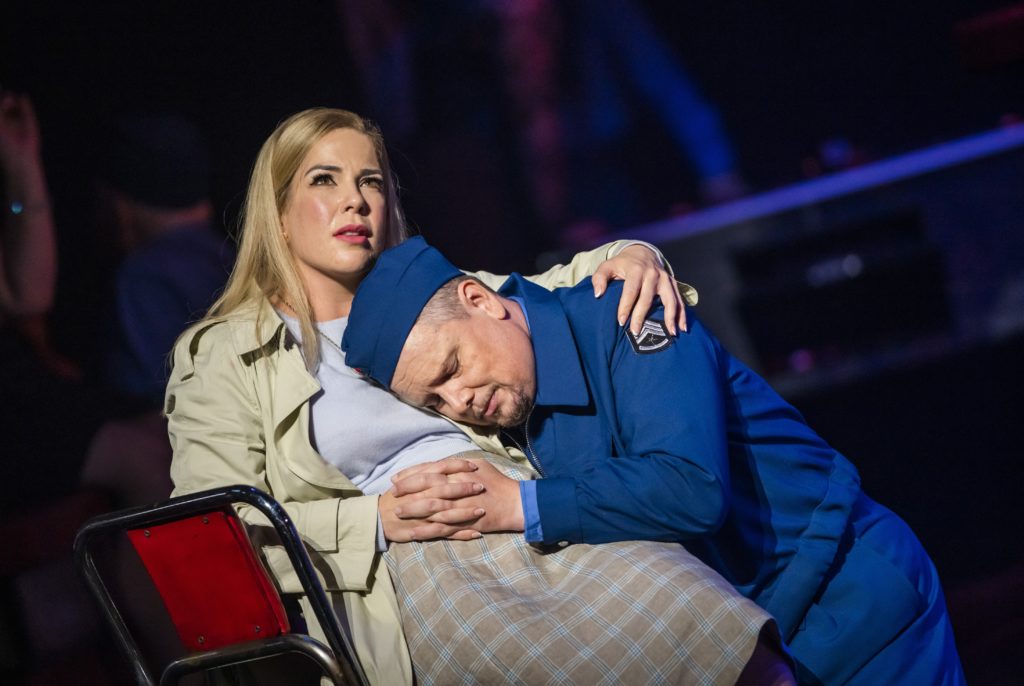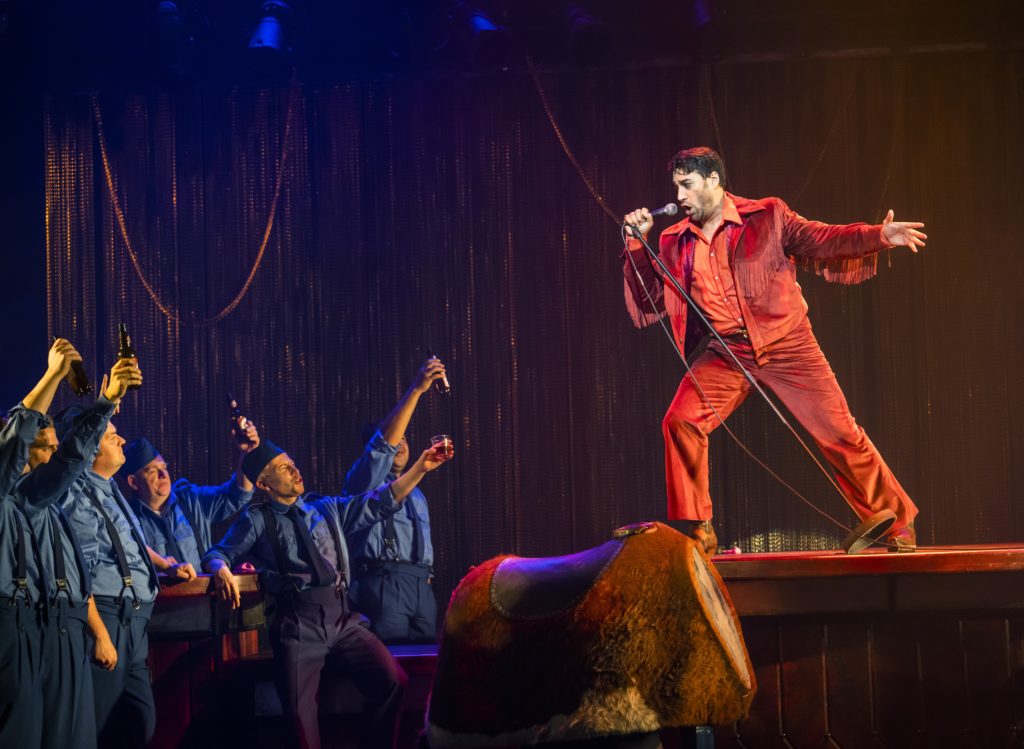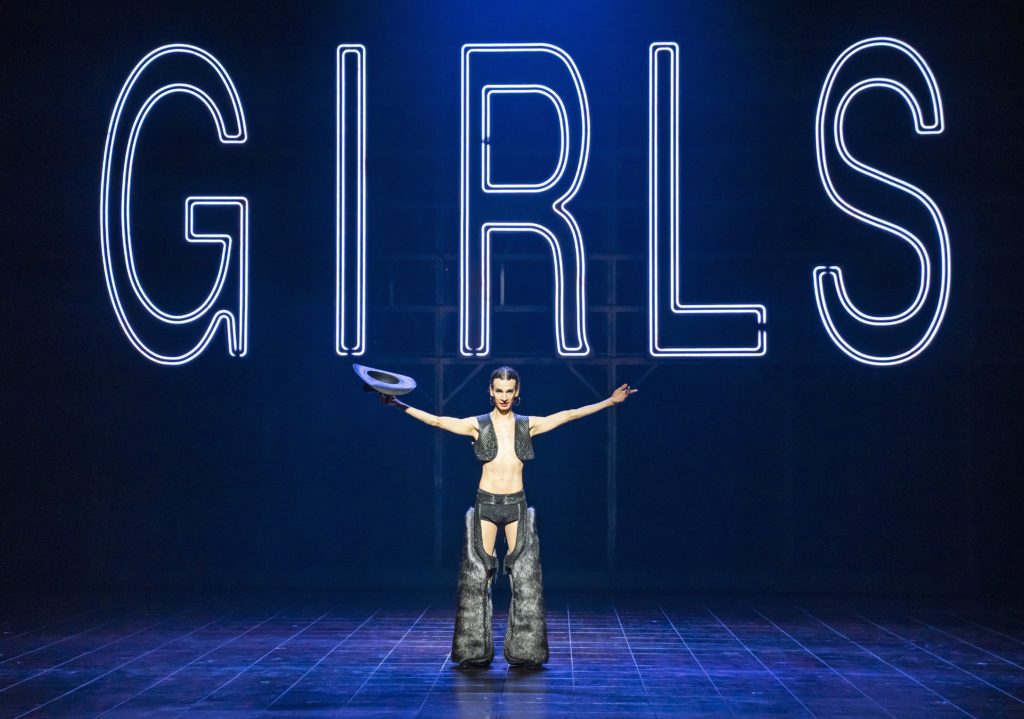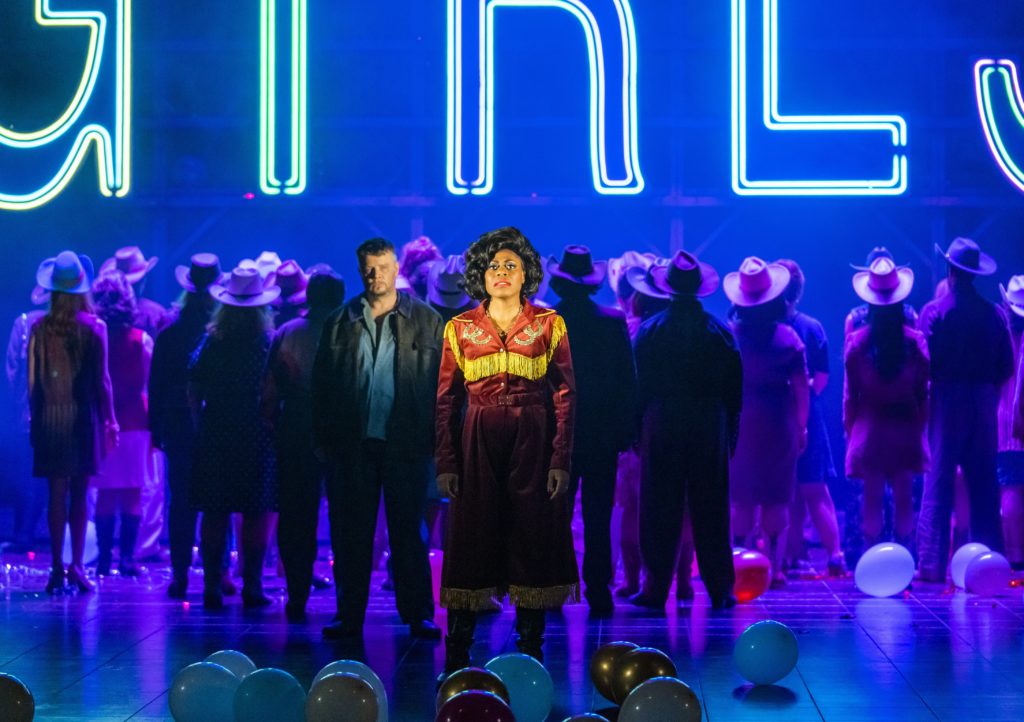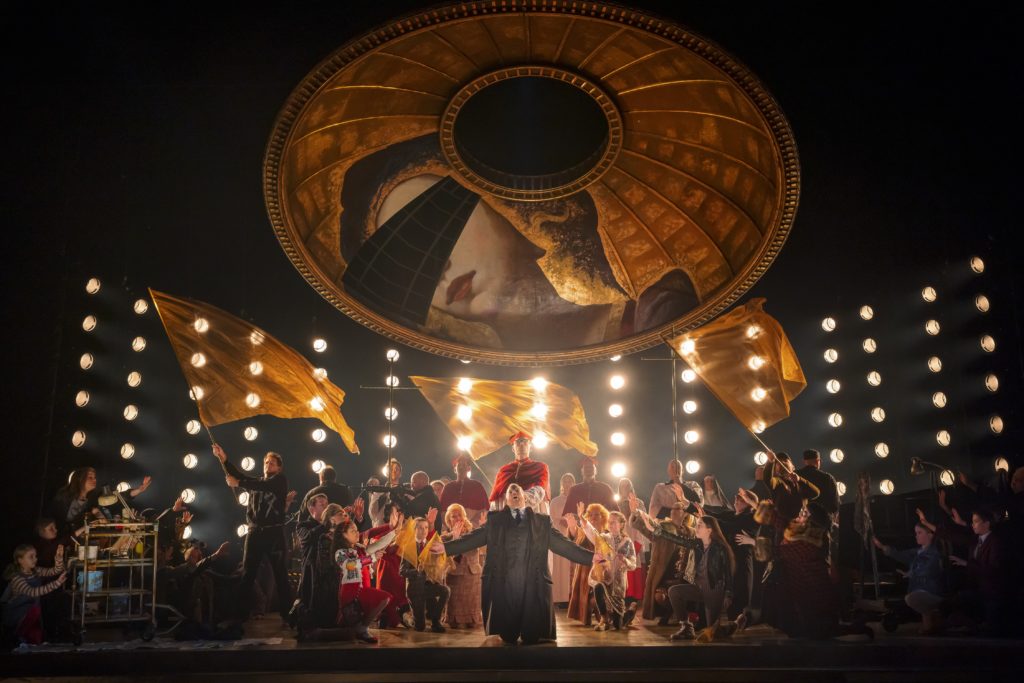
Opera North in Tosca, Leeds Grand Theatre; further performances on January 28, 2.30pm; February 3, 22, 25 and 28 and March 2, 7.30pm. Box office: 0113 243 0808 or leedsheritagetheatres.com. On tour to Salford, Nottingham, Newcastle and Hull until April 1; more details at operanorth.co.uk.
EDWARD Dick’s updated production of Tosca has returned to Leeds after four and a half years and under his continued aegis on the surface not much has changed.
Still with us, remarkably, is Robert Hayward, who has held onto the role of Scarpia since Christopher Alden’s 2002 production. Giselle Allen is back in the title role. Those two alone are surely enough to bring Yorkshire audiences back in droves. Both have been stalwarts in Leeds for at least two decades, virtually company principals throughout that time.
Otherwise, interest centres on the British debut of Ukrainian tenor Mykhailo Malafii – in fact he had never set foot on these shores until the rehearsals – and the conducting of new music director Garry Walker, taking over from the (now) principal guest conductor Antony Hermus. This quartet makes a tasty combination of the tried and tested on the one hand with innovation on the other.
So, this is no mere rehash. Quite the contrary. From the moment that Callum Thorpe’s lithe Angelotti shins down the rope from Tom Scutt’s central cupola there is the excitement of fear in the air, although it is balanced by Matthew Stiff’s amusingly bumbling Sacristan and Malafii’s smiling Cavaradossi, who seems not to have a care in the world.
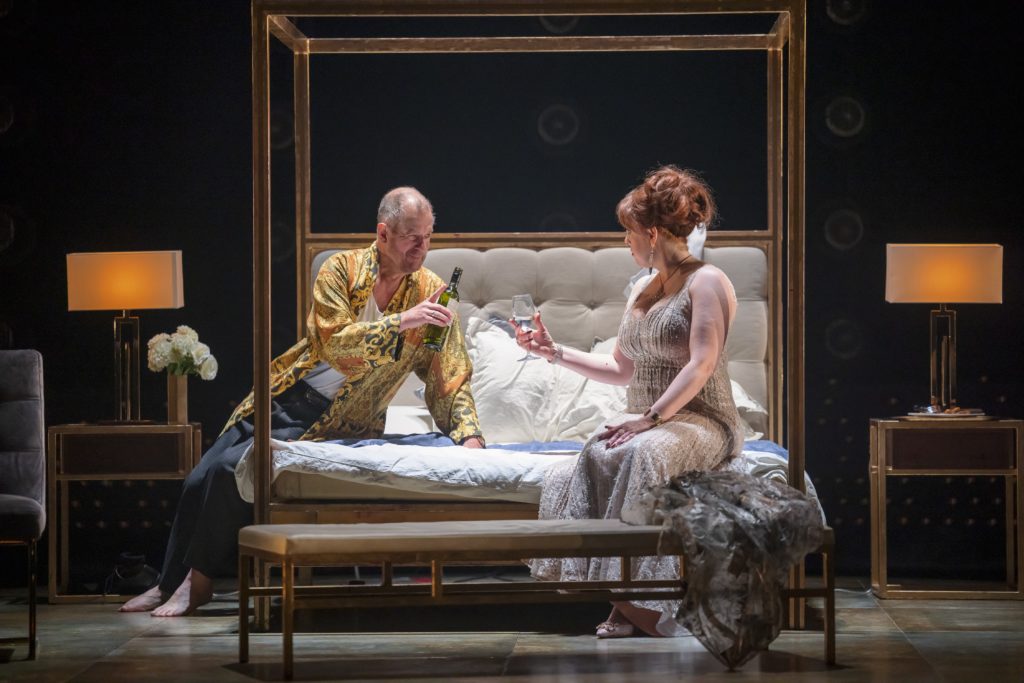
When the net tightens, the contrast is heightened. We are reminded that Scarpia is not universally despised when the priest at the close of a rousing Te Deum appears to bless him (echoes of Patriarch Kirill’s espousal of Vladimir Putin). More importantly, Tosca and Cavaradossi establish the warmth of their love in their brief rendezvous.
But Act 2 is the real clincher. The scope of Allen’s soprano is breath-taking, thrillingly determined at the top, a chesty growl of revulsion at the bottom. She has surely never sung better. As she and Hayward chased each other over and around Scarpia’s bed – his “office” in every sense – we were on the edge of our seats. This was for real.
Hayward has refined his Scarpia from a straightforward monster into something more nuanced and sinister, a wily pervert. When he wipes a tear from Allen’s cheek with his finger, it is virtually an act of abuse.
He leaves no doubt of his intentions by pleasuring himself against a bedpost. But his baritone tells us that although his lust is up, so is his anger. This is more than menace; it is hell-bent lechery. His death is horrendously gory. When his body twitched just before the curtain, the person in the next seat almost jumped out of their seat.
Bar sales undoubtedly soared in the interval as nerves were soothed. There are not the same shocks in Act 3 although Tosca’s fall backwards through the cupola, now on its side, is hair-raising enough. By now, Malafii’s tenor has reached full flow. His Act 1 sound was dry and quite tight, but as relaxation kicked in his tone warmed and resonated more broadly.
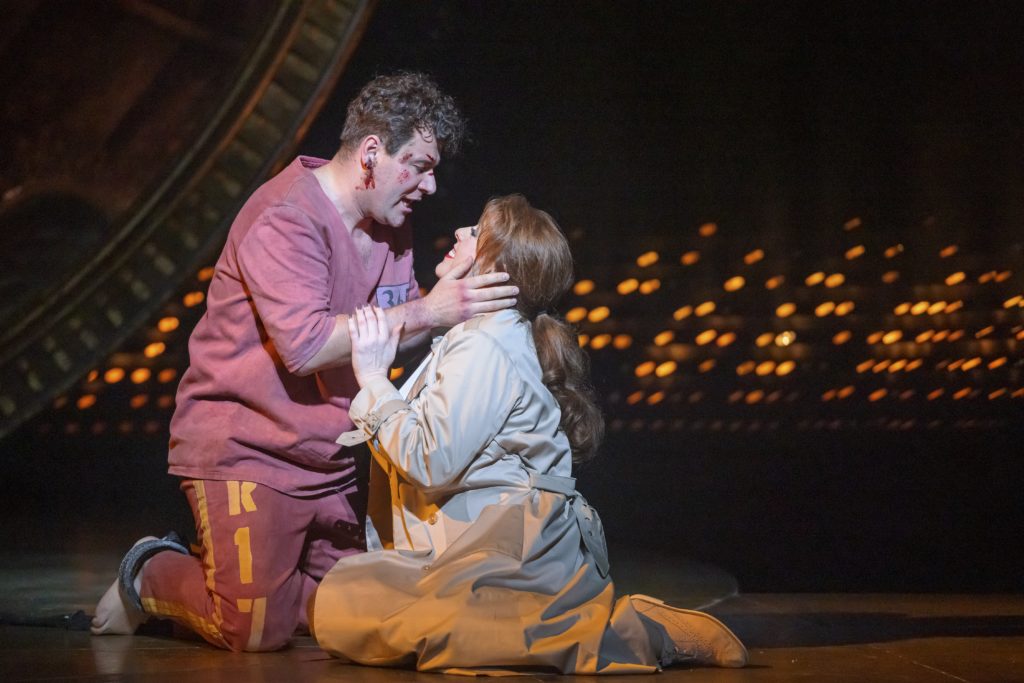
As the run progresses the stars in ‘E lucevan le stelle’ will doubtless glow more brightly. Alex Banfield is a lightweight Spoletta, more PA than gangster, but Richard Mosley-Evans’s thuggish Sciarrone compensates. Bella Blood (double-cast with Hattie Cobb) is a sweet-toned Shepherd Boy. The modern tech paraphernalia of mobiles and laptops only serves to underline that there are plenty of despots still around.
In the overall analysis, Garry Walker’s orchestra is a character in its own right and pulls no punches. The horns, deprived by retirement of their legendary principal Robert Ashworth, are still right on the button at the start of Act 3; the brass in general are fiercely edgy. One can only admire the way Walker’s orchestral punctuation, especially in Act 1, is so tautly disciplined.
In last November’s round of Arts Council England grants, Opera North was “awarded” a stand-still £10.677 million per annum until 2026, effectively a serious cut. Amid the general whingeing in the British operatic world, Opera North has remained silent and simply got on with it. It’s called Yorkshire grit (as a transplanted southerner I can afford to say that). The proof of the pudding is a Tosca that any company would have been proud to mount.
Review by Martin Dreyer
Opera North’s Tosca plays Hull New Theatre on March 30 and April 1, 7pm. Box office: 01482 300306 or hulltheatres.co.uk.

